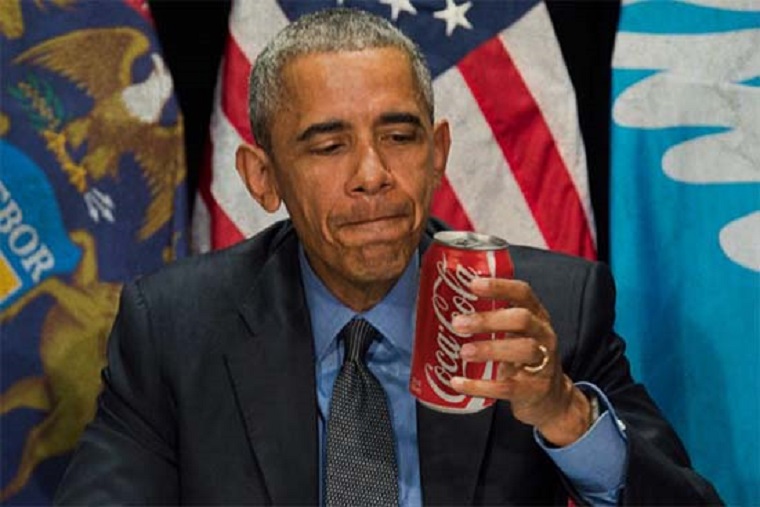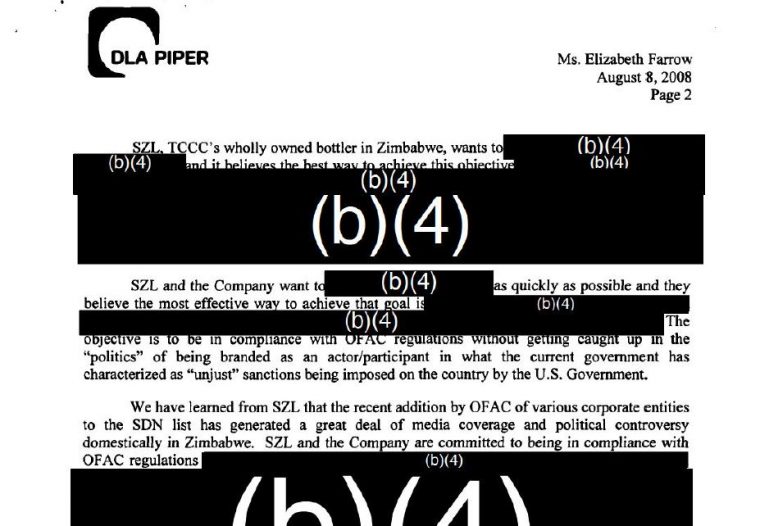For most Zimbabweans, especially the affluent, it is only natural to have a drink with your meal. But if it is a coke, a sprite or any Schweppes product, thank former United States President Barack Obama for that because he agreed that The Coca-Cola Company could sell its products in Zimbabwe.
That is the effect of the United States sanctions on Zimbabwe imposed in 2003 as United States companies with businesses in Zimbabwe have to seek authorisation to do business in the country.
And for the company to get that authoirsation, it has literally to bare its soul to the US treasury’s Office of Foreign Assets Control which enforces the sanctions and has to pay specialized lawyers to apply on its behalf.
Schweppes Zimbabwe, for example, literally begged OFAC for a speedy the processing of its licence in 2008 because it did not want to be involved in any “politics”, and at the same time, wanted to sell its stuff as quickly as possible because of the hyperinflation that rocked the nation at the time.
According to documents obtained by The Insider from OFAC under the Freedom of Information Act show that at least seven companies had to go through this rigorous process.
Schweppes, which is wholly owned by The Coca-Cola Company (TCCC) said the objective of applying for its licence was to be in compliance with OFAC regulations without getting caught in the “politics” of being branded as an actor/participant “in what the current government has characterised as unjust sanctions being imposed on the country by the US government”…
“Given the economic collapse that is taking place and the speed with which it is occurring, we ask for an expedited decision on this licence application so that this matter can be closed and this financial uncertainty put to rest,” it wrote.
TCCC was using DLA Piper US llp as its lawyers.
Du Pont which used Crowell and Moring as it lawyers, sought a licence to sell its Pannar and Pioneer seeds.
Universal Leaf Tobacco also applied to sell its tobacco and so did the Federal Reserve Bank of New York which was in business with the Reserve Bank of Zimbabwe.
Fosbel Inc had to seek permission to do business with the Zimbabwe Iron and Steel Company, while International Alloys wanted to buy high carbon ferrochrome from Zimbabwe.
Western Union too had to seek clearance to do business in the country.
*The documents obtained by The Insider were heavily censored ostensibly to protect trade secrets.
(339 VIEWS)

